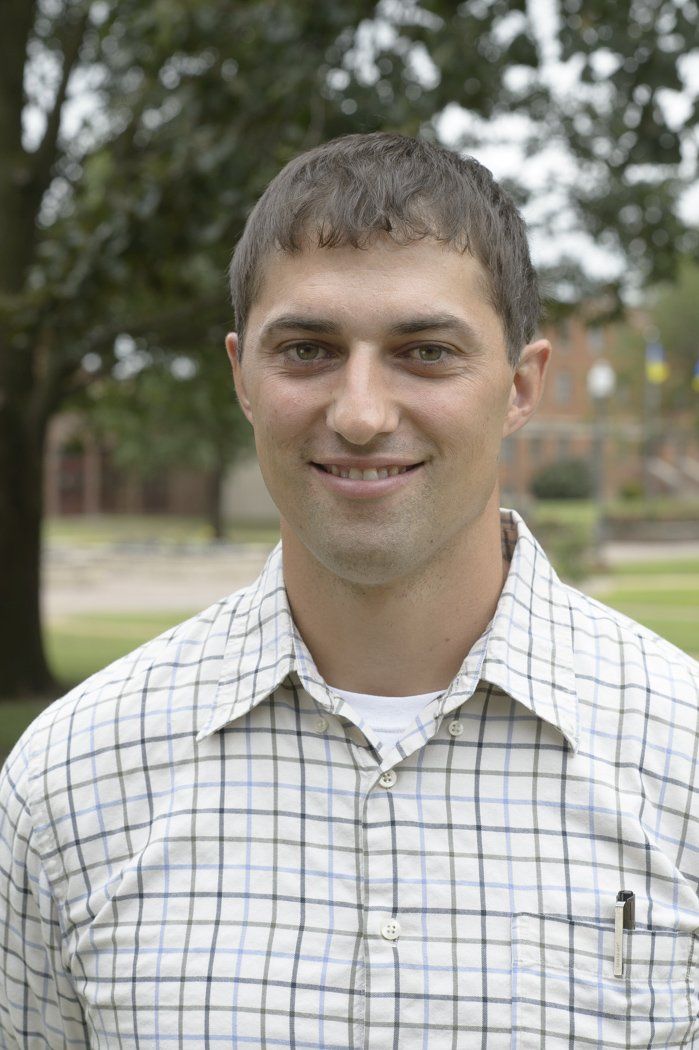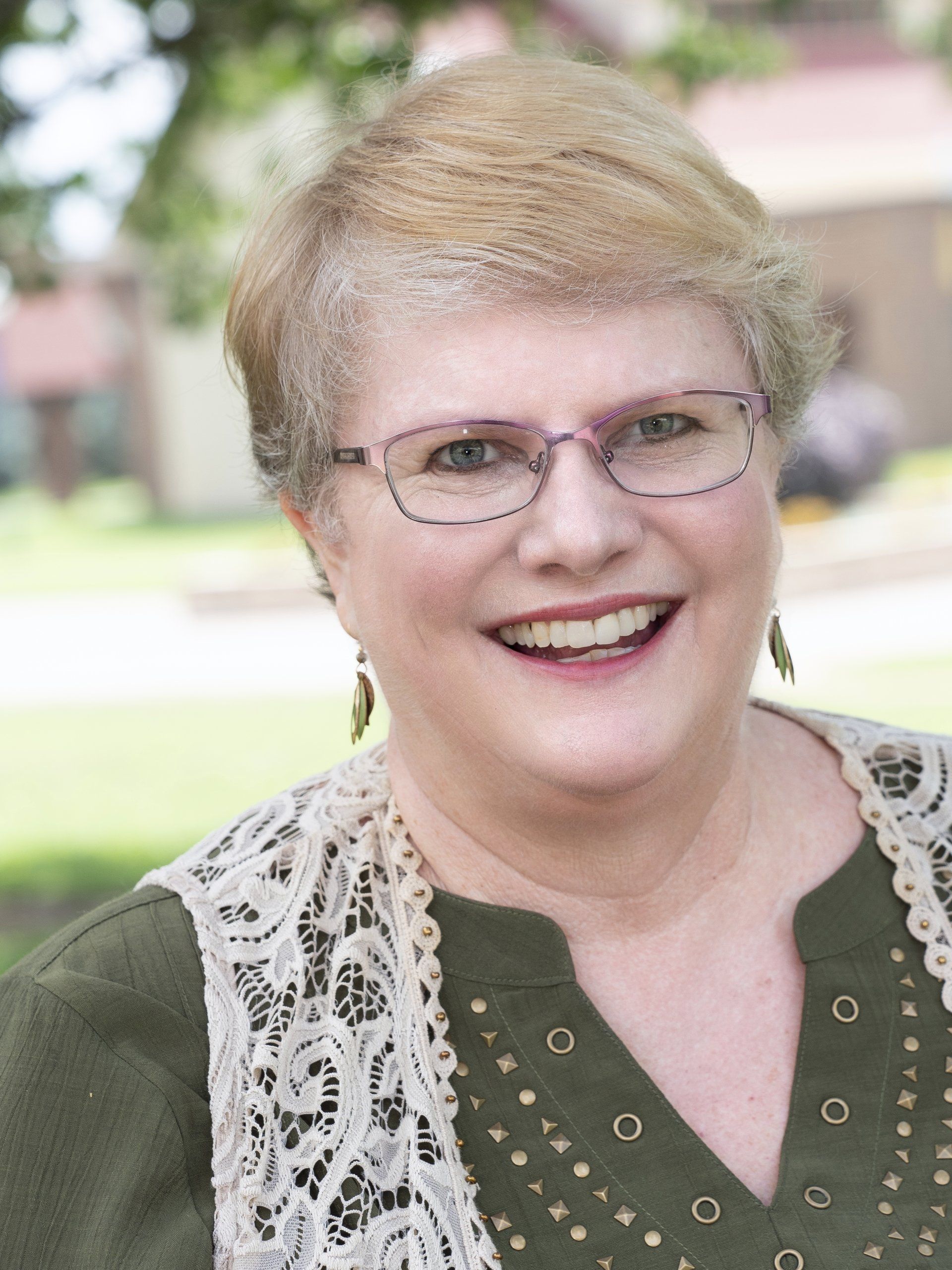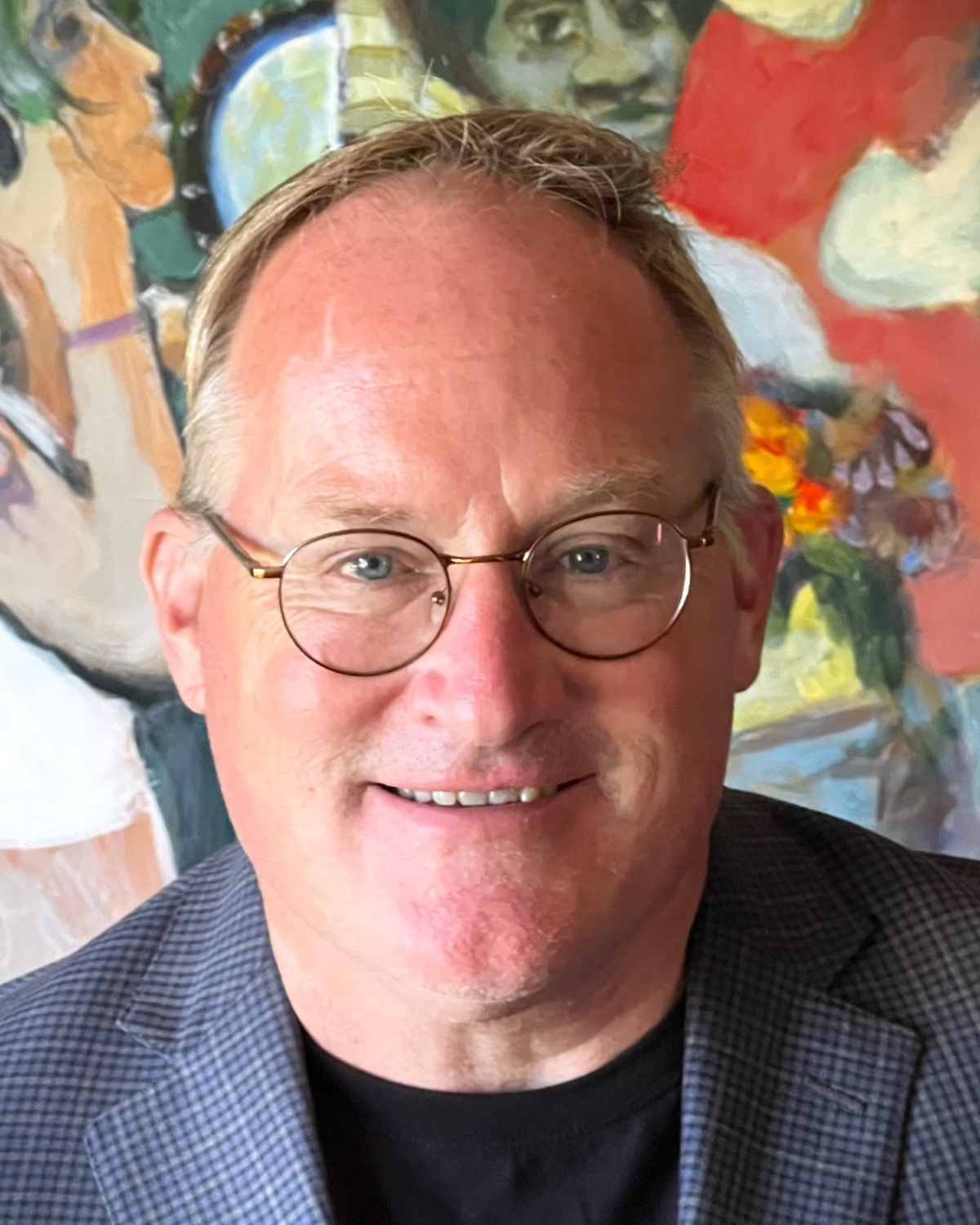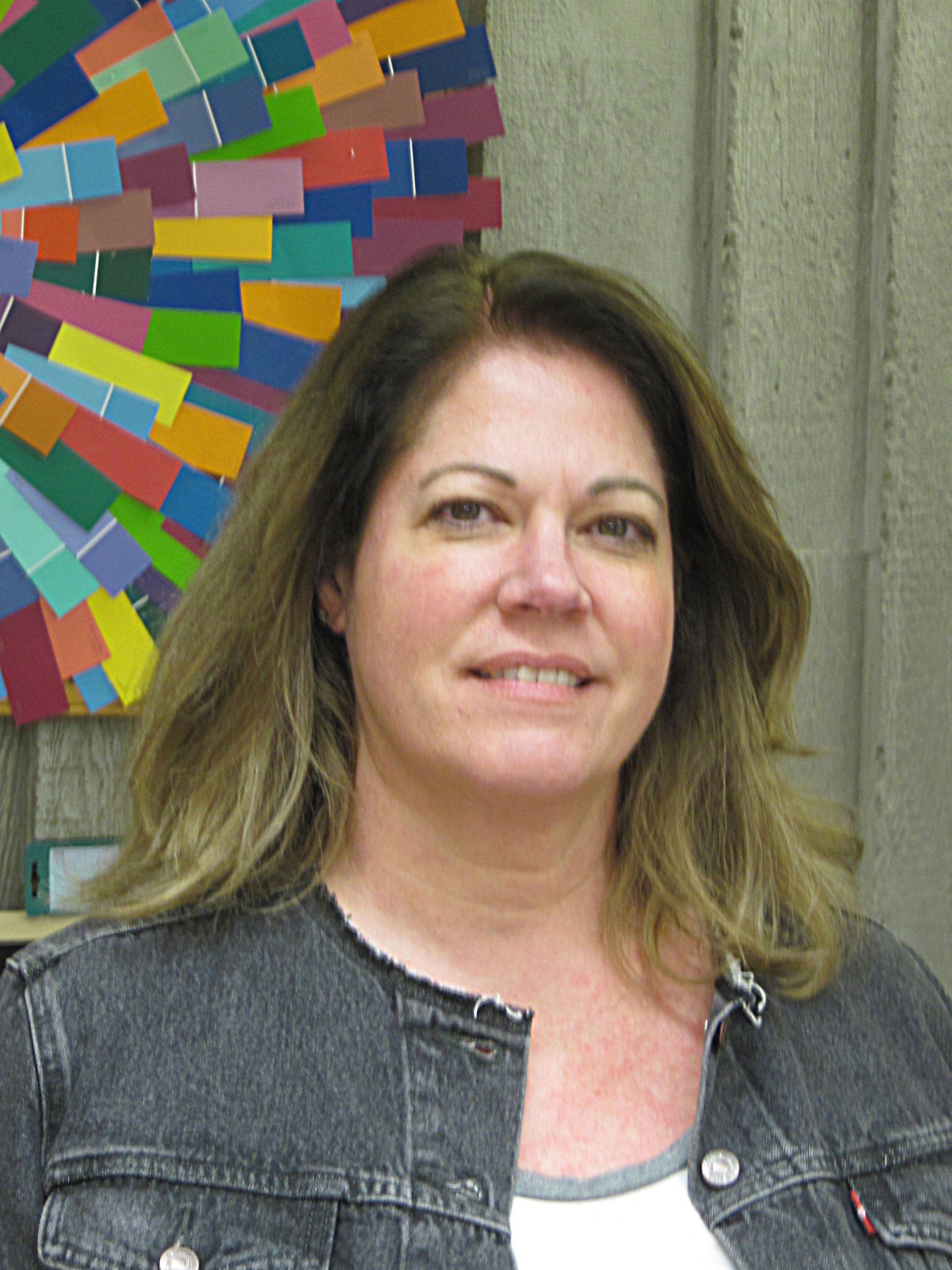Education Conference
Innovative Next Steps in PreK - 12 Learning
April 11, 2026
Review last year's 2025 education conference schedule as an example here!
You’re invited to the Bethany College Education Conference! This interactive, intergenerational conference presents a unique opportunity for veteran educators, college education majors, high school students, and anyone considering a career in education! Our presenters will provide practical, innovative techniques and concepts in the field of education. Attendees will have an opportunity to earn graduate credit, obtain professional development points, collaborate and network with other educators, and learn more about a career in education.
Explore Teaching at Our Annual Education Conference
Please use this link if you are a current working education professional.
- Registration Fee (includes lunch):
- Teacher: (Early bird - before March 1st) $40 (March 1-April 10) $80
- Gain professional development:
- Enrollment into ED510 - Practical Applications in PreK-12 Education: $300 ($150 per credit - two graduate credit hours)
- Learn and network with leaders and experts in the Education field
Registration is non-refundable.
Please Use this link if you are a High School or College Student.
- Registration Fee (includes lunch):
- Student: $10
Registration is non-refundable.
Choose Your Learning Journey
This year, we're introducing specialized learning strands designed to deepen your expertise:
• Science of Reading
• AI in Education
• Academic & Behavioral Interventions
Something for Everyone
Beyond our focused strands, explore sessions on student engagement, classroom management, and many more topics relevant to all grade levels and subject areas.
Whether you're seeking targeted skill development or broad professional growth, our conference offers practical strategies you can implement immediately.
Stay tuned and return to this page for updates on speakers and topics!
Schedule
view full schedule →
8am - Registration
8:45am - Opening Ceremony
9:15 - Session 1
10:15 - Session 2
11:05 - Break
11:30 - Session 3
12:20 - Lunch
1:40 - Session 4
2:45 - Closing Reception
More presentations to come, check in again soon!
Last updated Feb. 5
Featured Presenters

Chris Perry
Chris Perry draws upon his experience as a teacher and working on several state and federally funded school improvement projects that provide technical assistance to districts and educators to address the academic, behavioral, social emotional, and mental health needs of the students they serve. Additionally, Chris has served on his local School Board since 2017 and guided several private and public-school systems through the Kansas Education System Accreditation (KESA) process. With Cultivate Education, Chris serves as Executive Director where he supports partner schools/districts in achieving their improvement goals by using the principles of implementation science to address areas of need, and to cultivate, replicate, and highlight successes in enhancing student learning.

Beth Clavenna-Deane
Dr. Beth Clavenna-Deane is a Senior Program Associate at WestEd, a nonprofit educational research and technical assistance organization. Beth leverages her 30+ years of education experience to provide training, coaching, and technical support for districts across the country on developing Multi-Tiered Systems of Support. She specializes in sustaining high quality and evidence-based, inclusive instructional practices, while also refining curricular efforts to achieve growth in reading, math, behavior and social emotional learning outcomes. Beth also supports states and districts to improve post-school outcomes for students with disabilities by implementing high quality, secondary transition practices, and she supports middle and high schools to braid these practices in their MTSS to accelerate student achievement growth. Beth has worked as a Secondary Teacher, Transition Specialist, Instructional Coach, Behavior Specialist, and an MTSS State Trainer. Beth lives in Shawnee, Kansas, with her husband of 29 years and her dog and cat. She has a son in college studying media production, and a son and daughter-in-law who are teachers in Kansas. She enjoys reading, walking in the park, going to dinner with friends, and traveling to see her siblings.
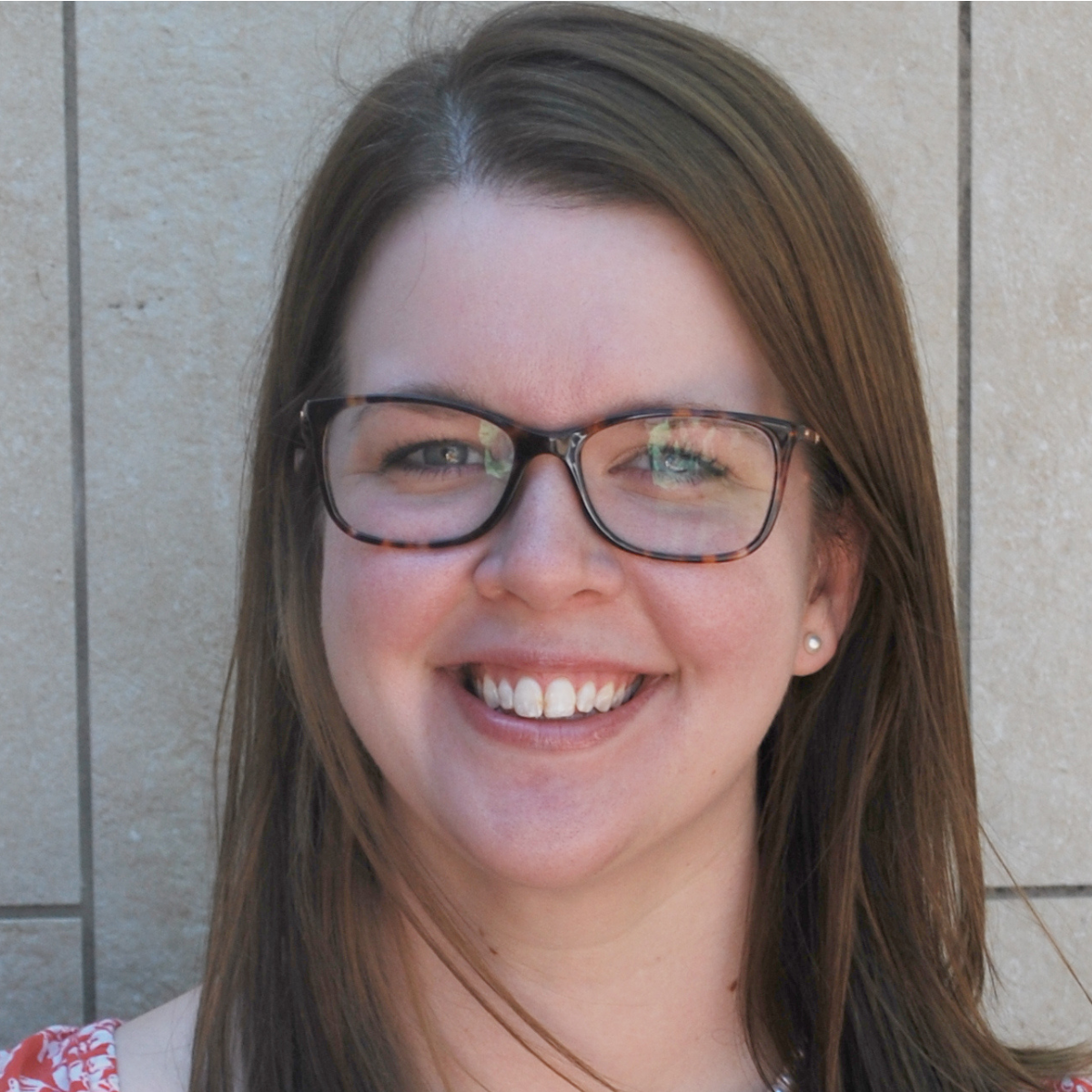
Rachel Finnell, Ph.D.
Assistant Professor Rachel E. Finnell received her Master of Arts (2018) and Doctor of Philosophy in Political Science (2021) from the University of Kansas with concentration in Comparative Politics, International Relations, and Research Methodology. In the classroom, Finnell utilizes civic engagement assignments and activities to increase student engagement. Further, she develops in-class simulations that further reinforce the importance of being civic engagement minded. Her research areas include Global Politics, Support for Democratic Norms, and Authoritarian Regimes. Recent Publications by Finnell include The Dictator Wears New Clothes: Authoritarian Home Style in Action (2024) and Democracy at Gunpoint: American Gun Owners and Attitudes Towards Democracy (2024). Courses she teaches include US Government, Comparative Government, International Relations and Diplomacy, Constitutional Law: The First Amendment, and The American Presidency

Mary Ellen Hodge
Mary Ellen Hodge is a State Trainer for Technical Assistance Systems Network (TASN) and Autism Tertiary Behavior Supports (ATBS). Her degrees are in K-9 Elementary and Special Education. She has a District Level Leadership license and an Autism Certificate. She's been in education for 17 years and taught students with intellectual disabilities, autism, and has been an Autism Coordinator. She enjoys working with districts to improve student outcomes.
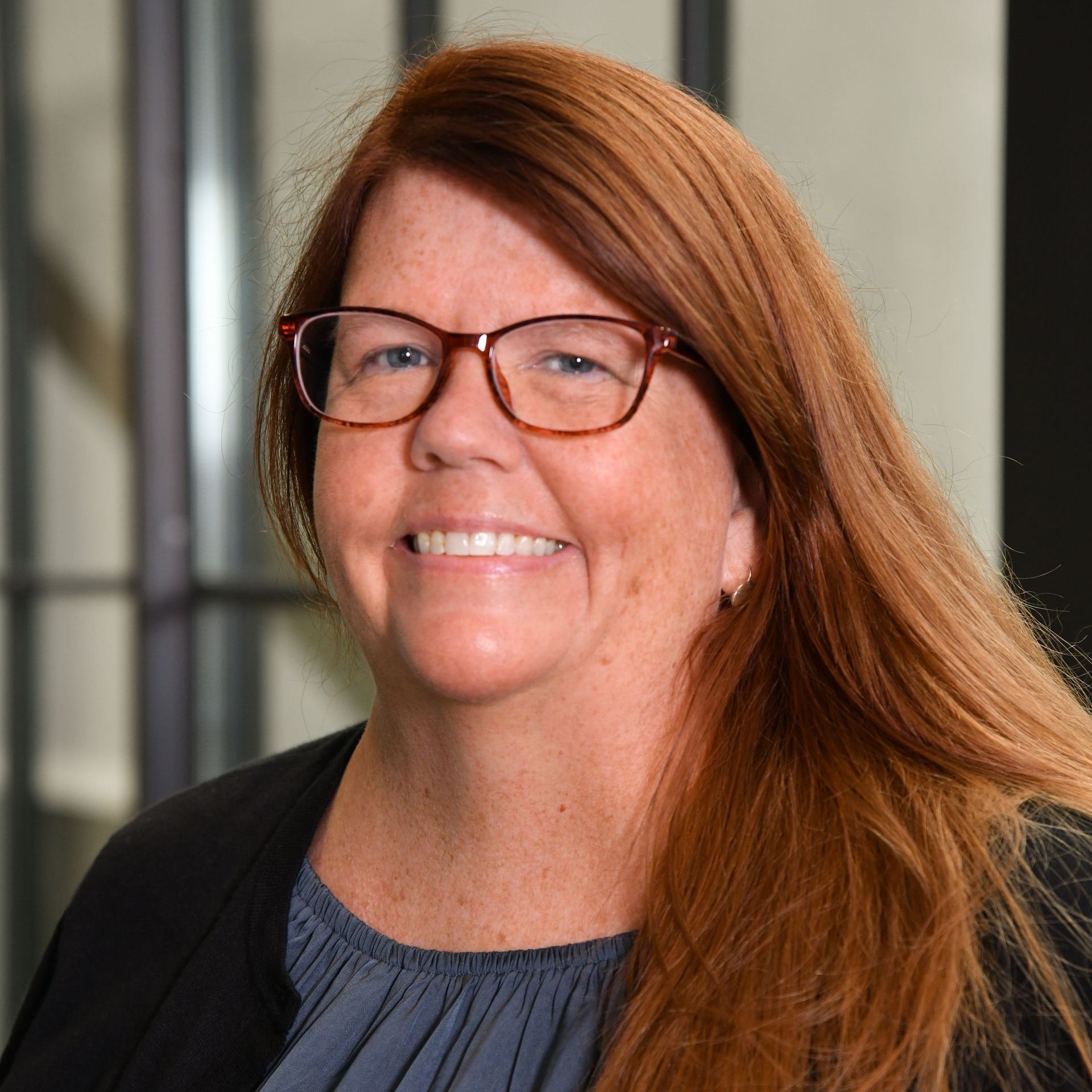
Paula Hough
Paula Hough is a member of the Special Education Policy and Practice team focusing on Multi-Tiered Systems of Support. She partners with state and local agencies to build capacity to improve learning conditions and outcomes for all students. She supports systems as they create, implement and refine practices to guide evidence-based practices and effective policy. Prior to joining WestEd, Hough was the Executive Director of Teaching and Learning for a 6A district in Kansas. During this time, she spearheaded work around personalized learning, tiered interventions, and effective collaborative team practices. She also worked as a curriculum director at the district level. Within individual systems she worked as an instructional coach, supporting academics, PBIS and SEL initiatives. Her career started in her hometown in Northern Minnesota as a high school English teacher. Hough has a strong formal education background in education leadership (masters degrees at the building and district level), curriculum and instruction (masters level), and academic leadership (doctoral level). At the site level, she has experience working with early learning through adult learners. Outside of work, Hough is often found going on adventures with her black lab, George, or spending time with nieces and nephews (and sisters, of course). As a Minnesota native, she enjoys spending time in the summer at the lakes - Kansas lakes just are not the same!
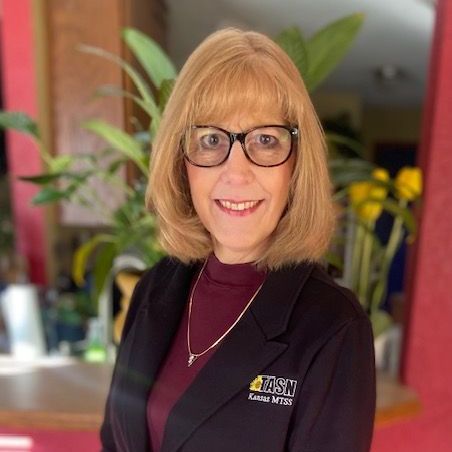
Susan Schiffelbein
Susan Schiffelbein, MSED, is a Kansas MTSS Trainer and has experience training in the areas of social emotional learning, behavior, math, and reading. Her teaching credentials and experience span Early Childhood through Secondary. Susan earned her English as a Second Language and Reading Specialist endorsements along with her Master of Science in Education Degree. She was a former PBIS coach, MTSS district coordinator, and Kansas Teacher of the Year candidate. Having experience in Cognitive and Appreciative Inquiry coaching models allows Susan to facilitate meaningful conversations which inspire positive change. Additionally, Susan serves on her local school board creating vision, driving policy, and setting goals for student and staff well-being and achievement.
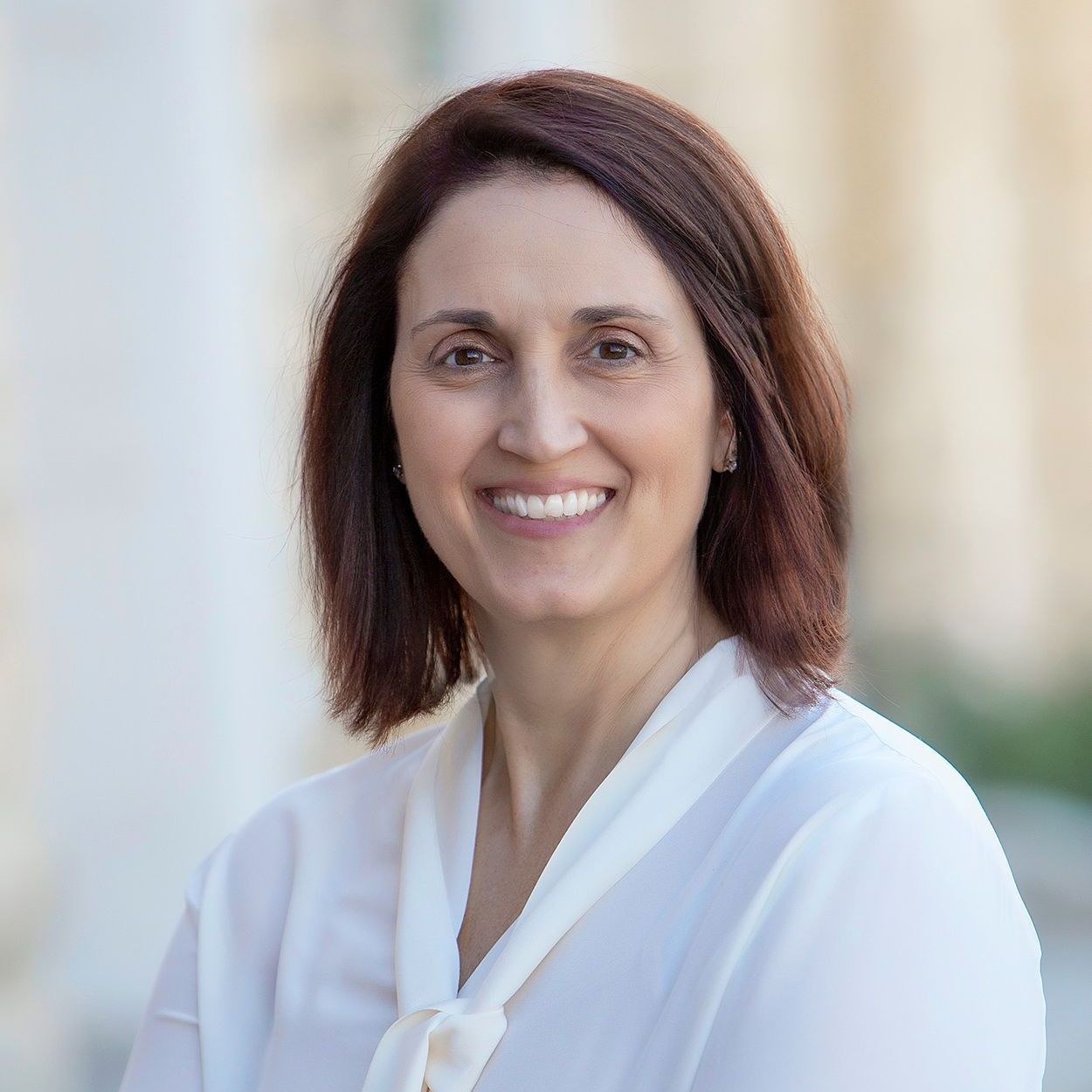
Stephanie Stindt
With a career spanning over three decades in education, Stephanie Stindt is dedicated to ensuring the highest quality reading instruction for all students. Having begun as a classroom teacher and reading specialist in local Kansas communities, she transitioned to a statewide impact, providing implementation guidance in the Kansas MTSS framework. As a reading specialist and district specialist, she delivered high-quality professional learning, focusing on the science of reading, systems thinking, and data to design effective instruction.
Currently serving as the Regional Manager of Language Essentials for Reading and Spelling (LETRS) at Lexia, Stephanie oversees the success of the LETRS professional learning course in large-scale, state-level implementations. With a master's degree in Curriculum and Instruction and a specialization in Reading and Language Arts from Kansas State University, she also holds a Building Leadership endorsement from Fort Hays State University.
Stephanie's commitment extends beyond her professional life. A theater mom to her daughter, she finds joy in visiting her two gainfully employed sons. In her leisure, she relishes travel to destinations with sun, sand, and warm waters.
Join Stephanie in her session, "So ALL Students Can Read: What the Science of Reading Says (Part 1)," addressing the literacy crisis by exploring the science of reading, effective teaching strategies, and ways to ensure the success of all students. Open to educators and prospective educators, this session aims to equip participants with insights into reading processes, effective teaching methods, and fostering successful readers.
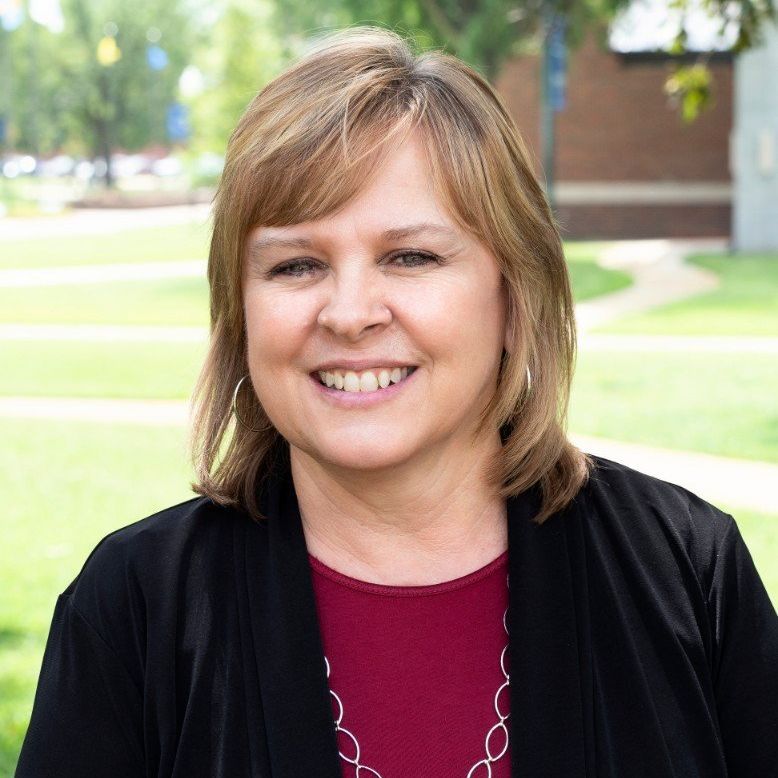
Denise Carson
Denise Carson earned a master's degree from the School of Library and Information Management from Emporia State University, Emporia, Kansas, and a bachelor's degree in interior design from McPherson College, McPherson, Kansas. Denise has held the Interlibrary Loan position, Assistant Librarian position, and is currently the Director of the Library at Bethany College. She has served and is serving on several committees, teaches Transfer Quest to incoming transfers at Bethany College, and loves teaching information literacy to students and faculty. Outside of her duties at the college, Denise enjoys spending time with her family on their farm.
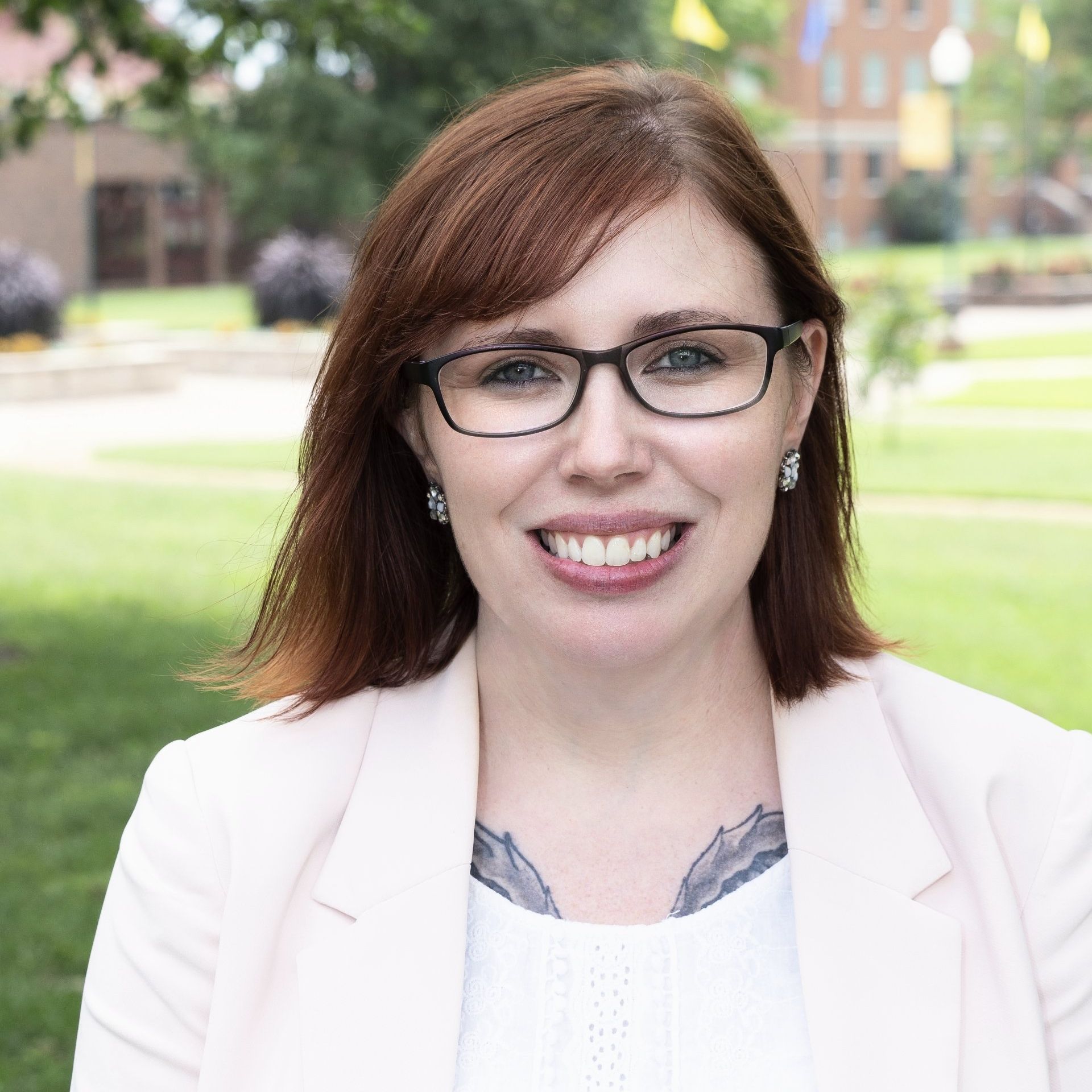
Brittany Torres
Brittany Torres started working at Bethany in August 2008. She came to Bethany after receiving her bachelor’s degree in psychology from College of the Ozarks. She later chose to pursue a master’s degree in library science at Emporia State University, which she completed in August 2013.
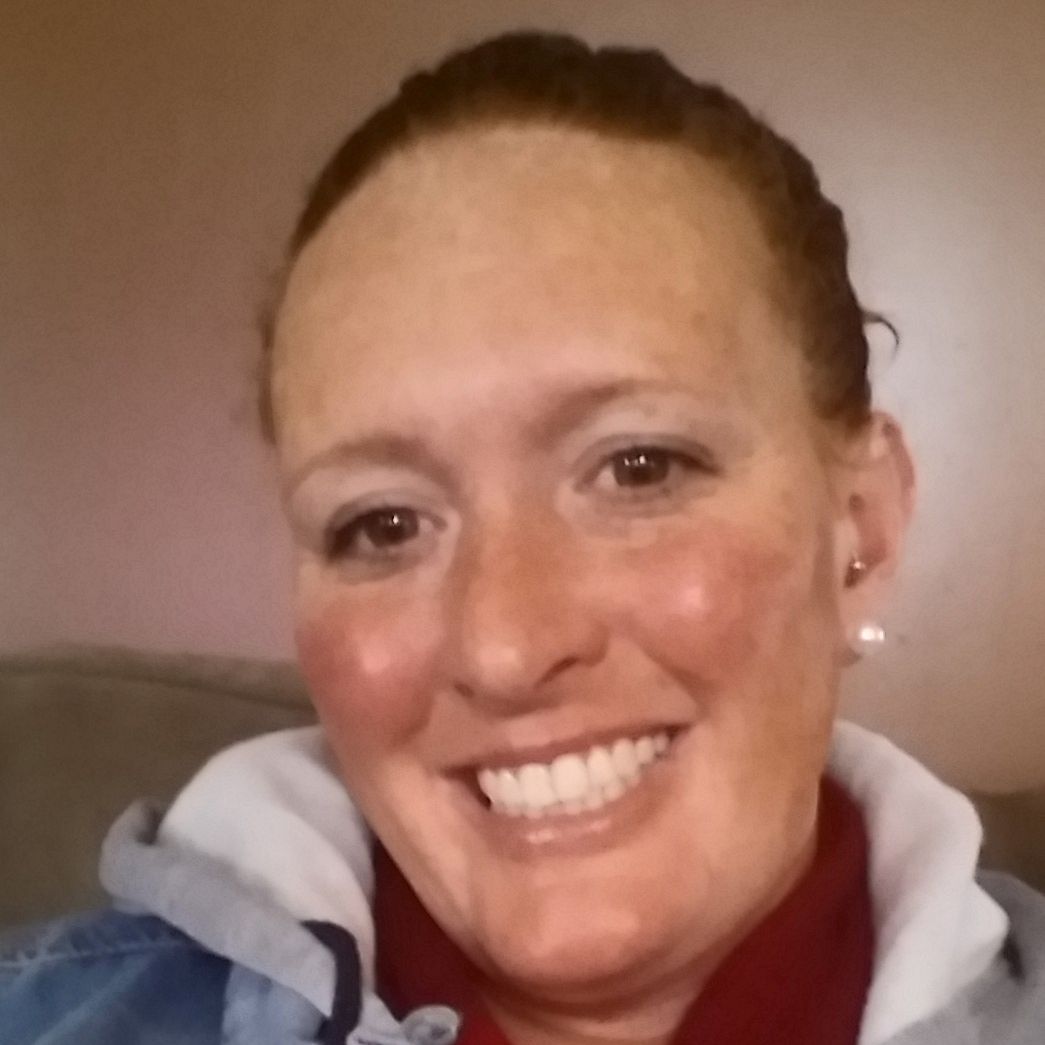
Molly Mosher
This is Molly’s 10th year as a teacher of the Adaptive Communication and Social Skills (ACSS) Low Incidence Special Education class at Junction City Middle School. She did her original undergraduate work through Bethany College, and then her master’s through Pittsburg State University. She served as a KALC with Technical Assistance Systems Network (TASN) and as part of their KALC Training Cadre. Molly is an adjunct professor at Bethany College for special education courses. She lives in Chapman, Kansas, with her husband. Her children both go to school at Bethany College. This year her daughter is a junior, and her son is a sophomore. Her daughter plays softball, and her son is a wrestler. When Molly is not teaching, planning, presenting, learning, creating task boxes or writing IEPs, she is being a mom and tries to attend all their activities.
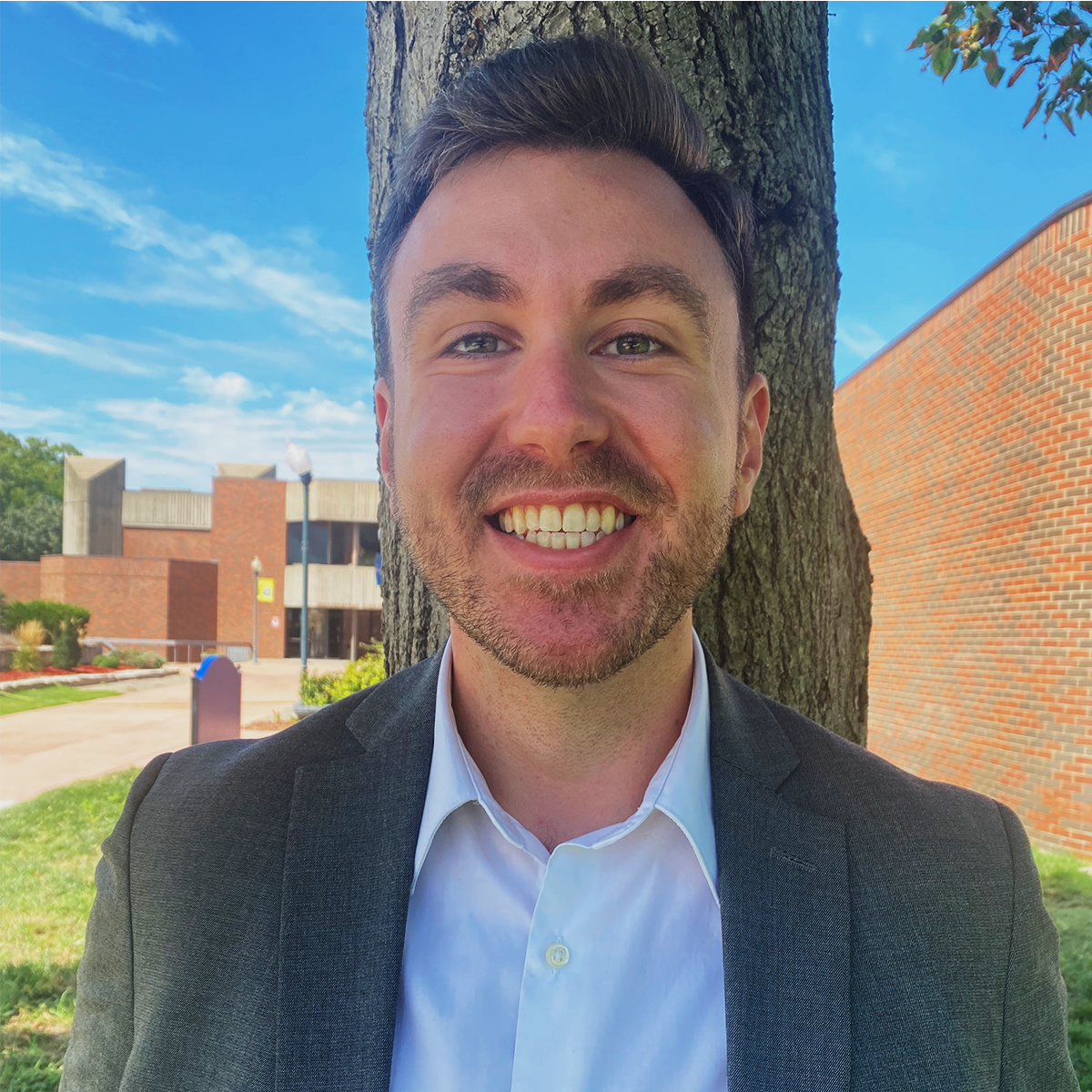
Troy Robertson, Assistant Professor of Music
With degrees in education, vocal performance, and conducting from Missouri State University and UCLA, Troy Robertson, DMA brings a wealth of knowledge and experience to the choral classroom. He has conducted the Grammy Award-winning UCLA Chamber Singers, the UCLA Symphony, Tonality (Los Angeles' foremost choir devoted to social action), and the Tesserae Baroque Orchestra. His conducting achievements reflect his dedication to excellence and his ability to inspire and lead diverse musical ensembles.
In addition to his conducting accomplishments, Robertson enjoys performing opera, including roles such as Figaro in Le nozze di Figaro, Nick Shadow in The Rake's Progress, Sy in Kay Rhie's Quake, and Mr. Lucian in the premiere of Grammy Award-winning composer Richard Danielpour's The Grand Hotel Tartarus. Robertson is a devoted husband and new father to a baby boy named Levi. His family has recently joined the Bethany College community as Assistant Professor of Music and Director of Choral Activities. He looks forward to continuing as Artistic Director of the Messiah Festival of the Arts (the longest-running annual Messiah performance in North America) alongside leading Bethany College's other historic choral traditions.
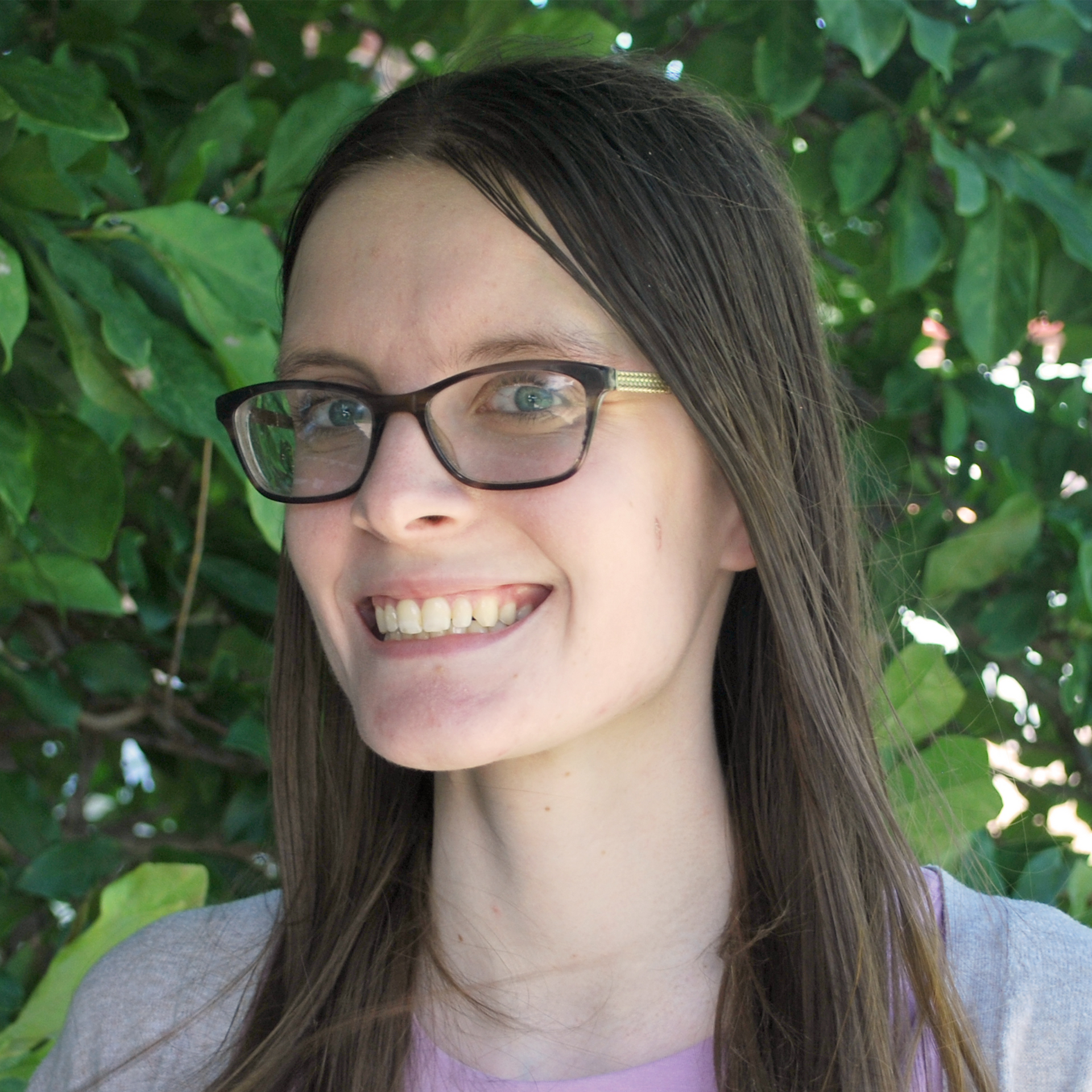
Amanda Baxa
Amanda Baxa is the Assistant Librarian at Bethany College. She is a 2021 graduate of Bethany College with a B.A. in History/Political Science. After completing her degree, she went on to pursue a master's degree in library science with an archives concentration at Emporia State University, which she completed in 2023.

Janell Neer
Janell Neer, MSE, currently works on the Technical Assistance System Network (TASN) Coordination Project through the Kansas State Department of Education. Throughout her career, Janell has focused her time and energy on empowering educators to become more proficient and adept in embedding the science of reading into their teaching practices.
Janell began her career in special education, working directly with students with dyslexia. She then went on to coach special education teachers in reading instruction. She is a fierce proponent for bringing what is known through the science of reading into the instruction students receive.
Throughout her career, Janell has been involved with several organizations, including the International Dyslexia Association, Academic Language Therapy Association and she is currently a board member on the Kansas chapter of The Reading League. She is a Local Certified Facilitator for Language Essentials for Teachers of Reading and Spelling (LETRS) and spends time supporting other LCFs and educators across the state.
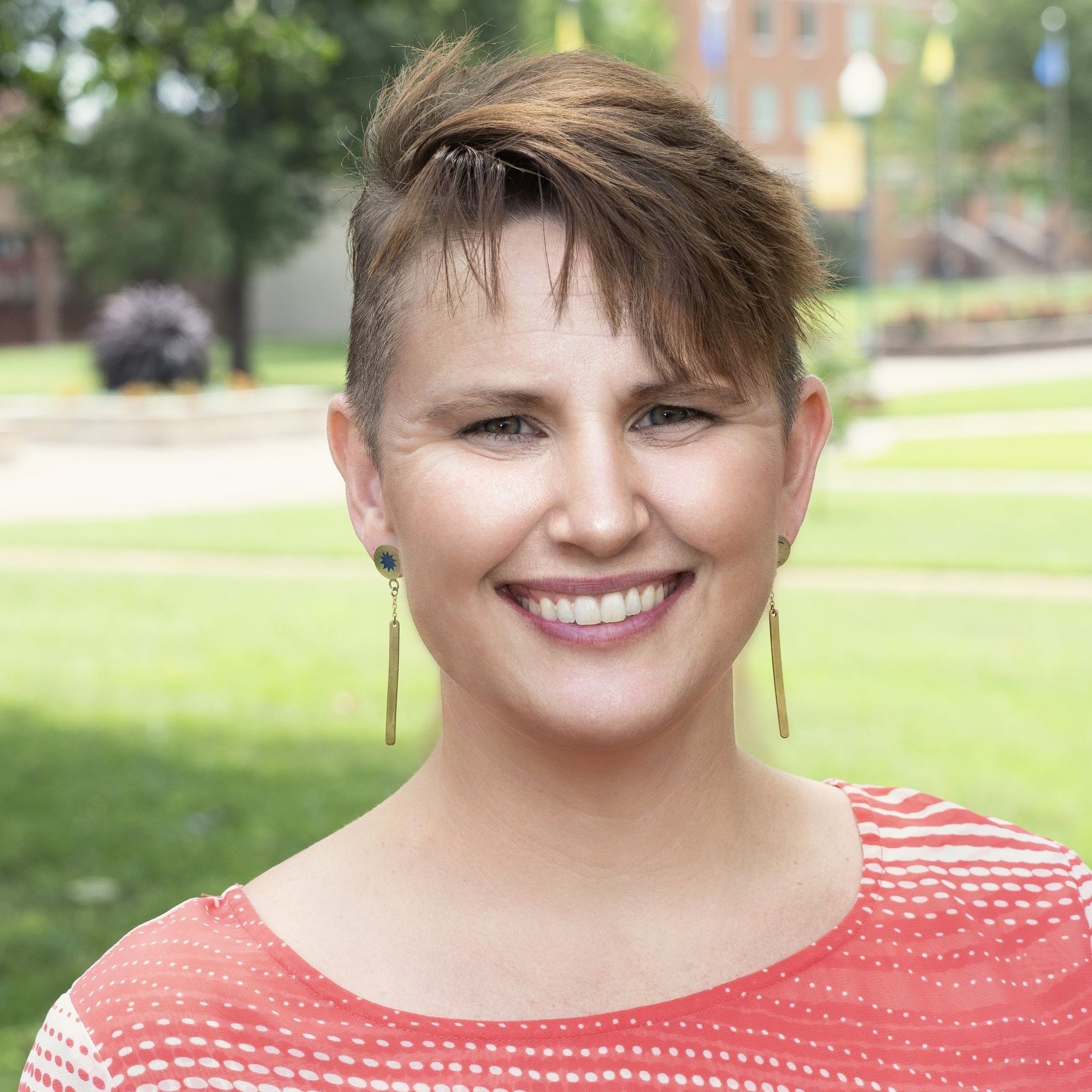
Pari Ford, Associate Professor of Mathmatics
Professor Ford earned a bachelor's degree in mathematics from the University of Nebraska at Kearney in 2000, master's degree in 2002, Ph.D. in mathematics in 2008, both from the University of Nebraska-Lincoln. Her interests include graph theory, combinatorics, analytic number theory, and mathematics education for pre-service and in-service teachers.
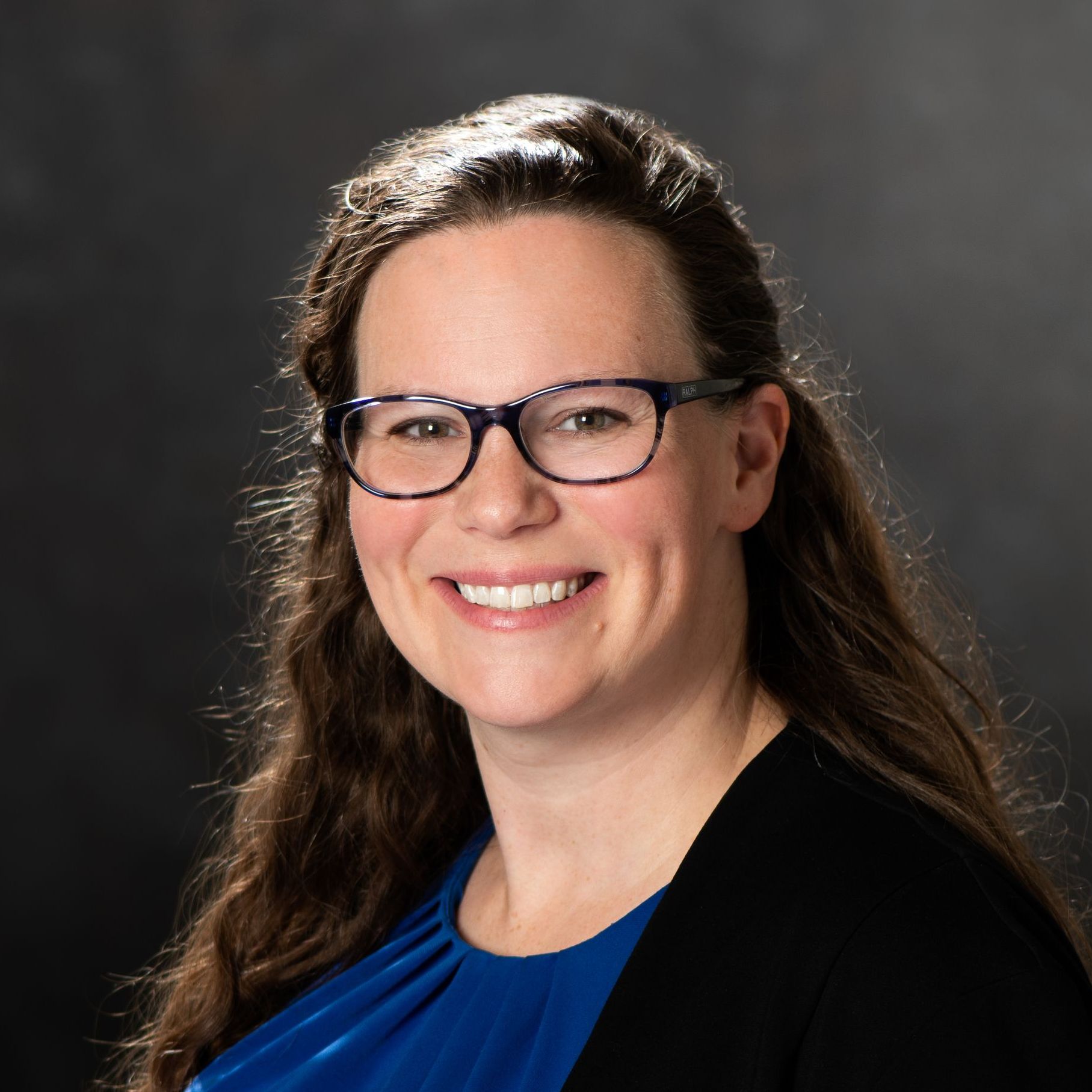
Kimberlee Chestnut Chang
Kimberlee Chestnut Chang is a research scientist at MIT Lincoln Laboratory. She graduated from the University of Wisconsin at Madison with dual BS degrees in physics and astrophysics, and went on to receive her MS in Electrical Engineering from Tufts University. Since joining MIT in 2000, she has worked in radar systems, air traffic control, humanitarian assistance and disaster response, and AI systems in support of our armed forces. For the past six years she has focused on the socio-technical considerations that lie at the intersection of AI and human behavior. In this capacity, she has developed and taught multiple classes on Human Machine Teaming for members of the US Air Force Academy, US Naval War College, US Marine Corps University, and for various government agencies.
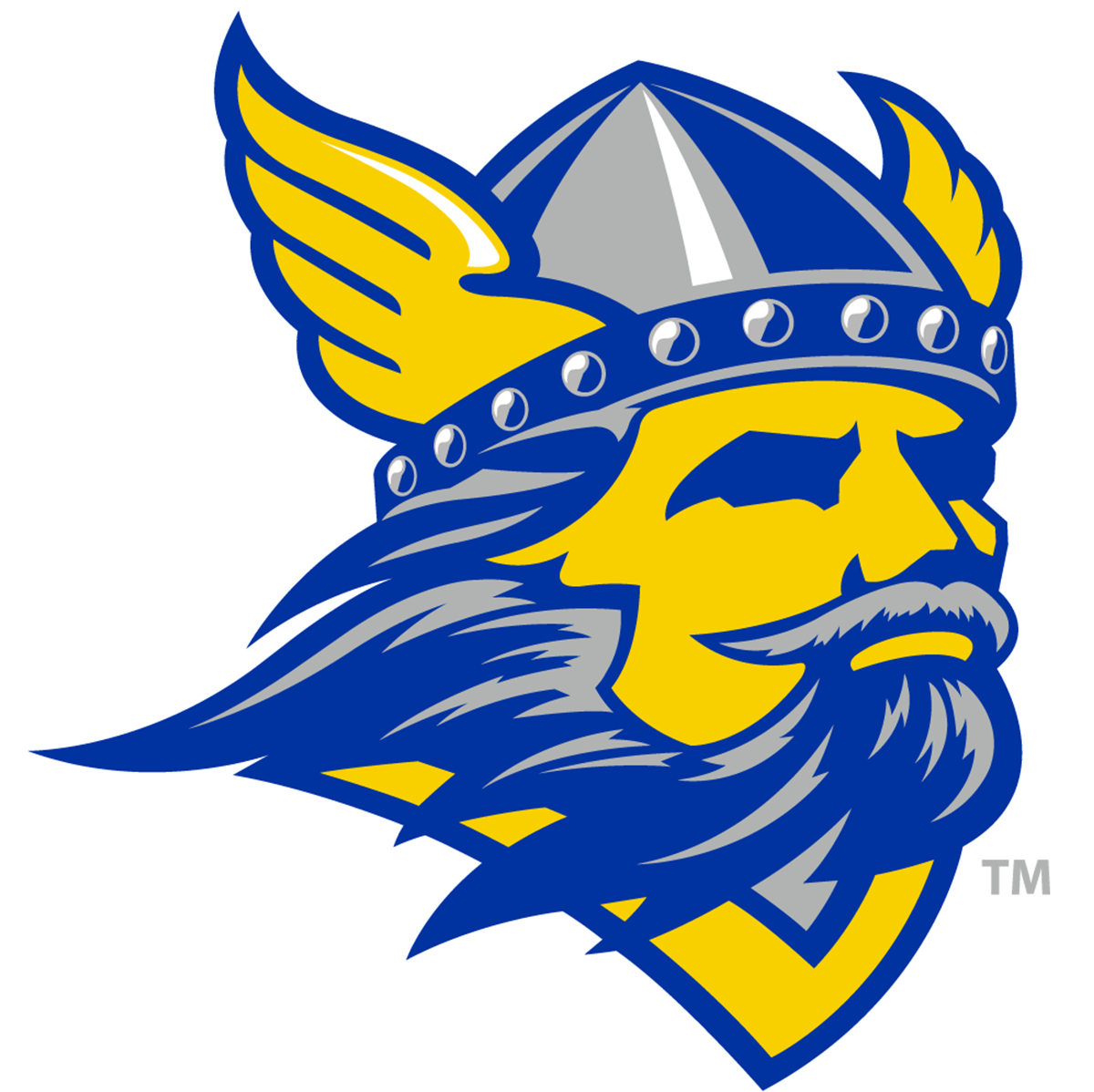
Christina Hoverson
With over 20 years of experience in K-12 public education, Dr. Christina Hoverson is a passionate educator committed to helping students thrive. As an interventionist at USD 469, Christina works directly with students to identify and address academic challenges by fostering a supportive and personalized learning environment. One of her significant accomplishments as a building and district leadership team member is working with Dr. Beth Clavenna-Deane
and the TASN team to develop secondary MTSS programming that has grown to include a school-within-school initiative. Christina is a licensed K-12 administrator, bringing a well-rounded perspective to her work. She is dedicated to professional growth and the advancement of education, consistently seeking innovative approaches to enhance student success. In addition to her role in public education, she has spent three years as an adjunct professor
at the University of Saint Mary, sharing her expertise with future educators. Outside of her professional life, Christina and her partner are raising five children, including 16-month-old twins, demonstrating her ability to balance a demanding career with the joys and challenges of family life. Her diverse experiences in and outside the classroom make her a valuable resource and advocate for students and educators alike.
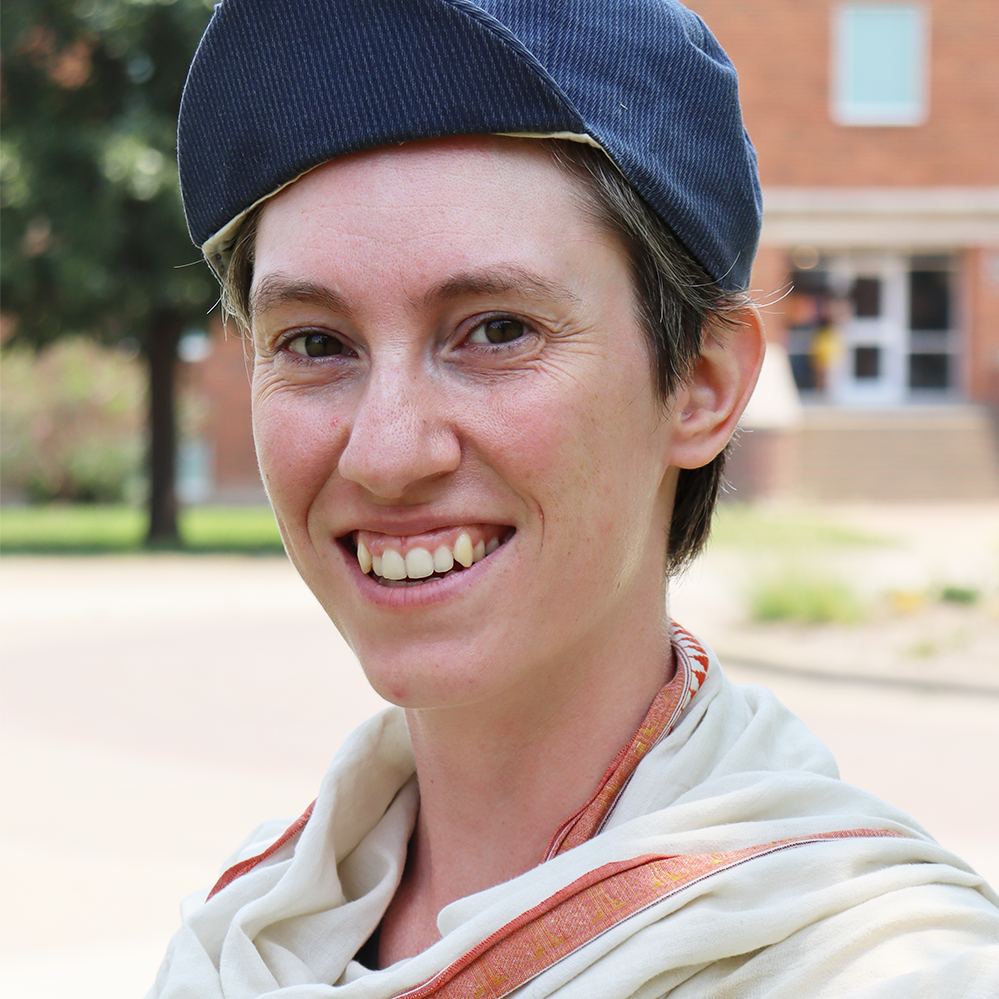
Emily Rude, Assistant Professor of Biology
Assistant Professor of Biology Emily Rude has taught at Bethany College for about as much time as it takes for a newly planted peach tree to bear fruit, if grown from seed. She graduated with a M.S. in Plant Breeding & Plant Genetics from the University of Wisconsin-Madison in 2015; her research was on the genetic diversity and evolutionary history of switchgrass. Currently she enjoys teaching genetics, evolutionary biology, environmental science, and various Core Curriculum courses at Bethany College. Teaching has taught her much, and there is much yet to learn.
Education Faculty & Staff
Alan English, Ph.D.
Associate Professor of Education
Department Chair
Gretchen Norland, Ed.D.
Associate Professor of Education
Coordinator of Secondary Education
James Baker, M.Ed., MAEL
Assistant Professor of Education &
Coordinator of Elementary Education
Kelley Menke, M.A.
Licensure Officer
Placement Coordinator
